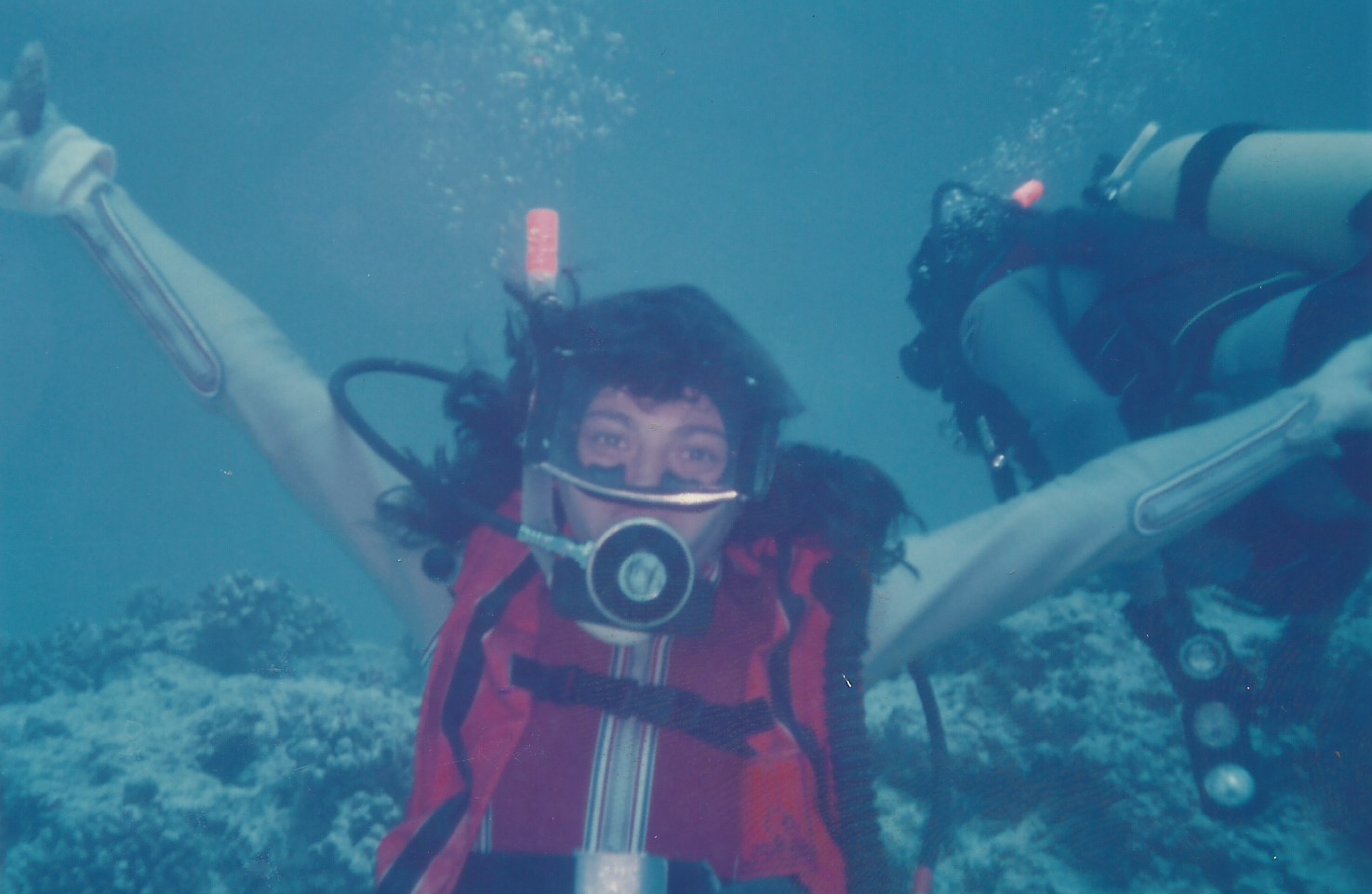By Mary Joye, LMHC
Your greatest strength can be your greatest weakness. If you’re codependent, which means you lose yourself caring for others, your compassion can become a compulsion to serve others and care much for those who care little about you. You could be what people describe as a selfless. It may really mean you have less of a sense of self if you’re not practicing self-care. A controlled, doormat type of codependent goes along to get along with others and doesn’t dare express an opposing opinion for fear of being ostracized. I have done this and it is self-betrayal.
To the other extreme a codependent can nag and become vehemently demanding while, rescuing people who didn’t want or ask for help. They are constantly busying themselves taking on people or causes that lead them to great loss. Some appear to be fiercely independent and they often say, “I know what’s best for you” or “I don’t need anyone to take care of me,” but they secretly do. They may seem different than the selfless kind but they are also self-avoiding and not taking care of themselves.
Both codependents are driven by a fear of abandonment, a need to be needed and a belief if they are good enough and do more than enough, everything and everyone around them will change because of their efforts and everyone will be happy. Codependents get dopamine and other chemical feel good “rushes” when they give or do and they feel badly when they are not giving or doing. In a very ironic twist, over-giving and over-doing can be a selfish act if out of balance.
The constellation of symptoms with extremes of behavior are damaging to the codependent but there is hope.
The extremes of codependency fall between allowing people to control you, to being controlling yourself. You may vacillate between the two depending on the person or circumstance. Though driven by the same fear of abandonment and loss of a relationship, the core of the extremes of codependency manifest differently. Here are a few examples of self-denial.
- Morphing or denying the true self a right to enjoy life.
- Intervening, giving advice or opinions when not asked to do so.
- Not happy unless the people you care about are “fixed”.
- Difficulty making decisions without seeking advice of others.
- Acquiescing to the will of others to keep the peace and the relationship no matter how toxic it is.
These are all forms of fear based, self-avoidant maneuvers. The frenetic and emotional calisthenics you do to keep people happy, are the very things that are wearing you out and making you anxious and exhausted. They also are self-defeating because no one likes to be around a disingenuous people pleaser or judgmental nagger.
The Controlled (Doormat Type):

The doormat spectrum type might say, “I will do everything to keep you happy. If you’re happy then I’m happy.” Remember the song lyric, “I want to be happy but I won’t be happy, until I make you happy, too. This song written by Youmans and Ceasar for the musical “No, No Nanette” is one of many codependent anthems. No seems to be the hardest thing for a codependent to say.
You can systematically learn to say “no” emphatically and diplomatically.
You can begin by using a gratitude sandwich and say something such as, “Thank you for asking me to do this for you, however I couldn’t do my best as I’m overextended, but I appreciate the offer.” The no is sandwiched between gratitude toward the other person and lessens the false feelings of selfishness. It isn’t exactly saying “No!” but it will help alleviate anxiety until you work up the courage to say no without fear of pushback from a pushy person.
The secret is the people you are chasing after and pleasing are unhappy with themselves. They take deliberate pleasure in raising the bar on what will keep them happy. It’s not that you’re not good enough. Nothing is ever enough for controlling people. Their dis-ease is apparent and imposed on you, if and only if you take it or allow it. You can detach and reconnect with yourself.
Have you ever thought, “If I love him/her enough they will see how much I love and care for them and they will appreciate me and change?”
They won’t change. They don’t want to change. If you keep feeding into their desires, they don’t have to change. However, they can change you for the worse. You are doing all the changing to please and appease them. Abusers and addicts have a need for instant gratification and codependents believe in the concept of delayed gratification.
The Controller (The Nagging, Ultimatum Giving or Unsolicited Advice Type):
The less obvious controlling codependent believes they are able to rescue or fix anyone and they act very confidently with altruistic intentions. They appear exuberant while caring for others. Many times, they’re caring for others as a means of feeling better about themselves. They “care” so much, that other people don’t want to be around them as they feel judged. The controllers are there for others whether someone wants them there, on not. They get angry or resentful if others don’t take their advice. We are taught as counselors to not give advice but to help others find their own best and authentic answers through exploring options and find a custom fit solution. We never say, “If I were you this is what I would do.” Controllers say that a lot and advice given from that perspective is an imposition and assumption with little to no regard for the desires of the other person.

Amazingly but not surprisingly, many codependents who do manage to “get someone fixed” end up leaving that person. This wasn’t really a person; it was a project. People are not projects. An example would be if a codependent “got someone sober” and the person began eating junk food. Getting them to stop eating junk food becomes the new focus to fix.
You are likely to become even more angry if not recognized for your “help”. The frenetic and emotional calisthenics you are doing to keep other’s “fixed” can be your undoing.
Have you ever said things like, “Look at all I do for you and this is the thanks I get!”
You will not be loved and appreciated for extreme, magnanimous efforts on either end of the spectrum.
The Balancing Act
You can find the balance of knowing how you desire to respond. Instead of asking others what they think you should do, or telling others what you think they should do, you can simply be still and listen within. Get in touch with your intentions and your inner self.
If motivated by fear, you’re not genuinely you, but ego driven. If motivated by kindness and respect for yourself and others you’re healthy and at peace. Peaceful is powerful and isn’t driven by the adrenaline and cortisol of fear. Peace doesn’t allow you to be sublimates or humiliated. It never dictates or humilates. It liberates!
An authentic and purposeful life reduces chaos and increases fulfillment for self and others. It doesn’t tolerate abuse. It doesn’t demand its own way. It allows you to be you and others to be themselves.
The most important key to balance is to surround yourself with people who support and encourage you with reciprocity and dignity. We’re all works in progress and do well when we support each other in observational, nonjudgmental ways.
To gain greater balance, you must discern when to stand up for yourself and when to step down and let others make their own mistakes and learn their own lessons. What do you do when you don’t know what to do or not to do? Just be your true you and if you don’t know who that is, make it your immediate purpose to figure it out by introspection or asking for professional help which is also difficult for a codependent, particularly the controlling kind.
Seeking your true self is not based on feelings but a sense of knowing and peace. Self-Actualization is a psychological term that Abraham Maslow applied to the goal of becoming authentic. It’s not being selfish; it’s becoming whole.
Self-sabotaging is the enemy of self-actualization.

A fulfilled life is a self-actualized life. Self-actualized people know the beauty of intermittent solitude and do not fear being alone or abandoned. They know they can be of service without being trapped in the bondage of fearful servitude. They have wonderful peak experiences and enjoy life to the fullest. This can be you!


